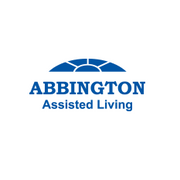
It’s estimated that almost 27% of Americans over the age of 65—approximately 14.3 million seniors—have diabetes. If your loved one is reaching this age, you should understand the risks and how to help minimize them. With a few proactive steps, you can take an approach to senior care that will keep them healthy.
Why Seniors Are at Risk of Diabetes
Type 2 diabetes develops over time as someone is exposed to sugar. Because seniors have experienced glucose exposure much longer than the average person, they have a higher chance of developing hyperglycemia, a term that means abnormally high blood sugar levels.
Lifestyle will also impact the level of risk; those who consume more sugar or unhealthy processed foods are at a higher risk than someone who eats a healthy, low-sugar diet. Exercise burns the glucose in the blood, so those with a sedentary lifestyle are also more vulnerable.
Prevention & Symptoms
 Because the three biggest lifestyle risk factors for diabetes are a poor diet, lack of exercise, and obesity, the best way to prevent it is by avoiding these risk factors in your senior care regimen. Your loved one should eat a low-sugar diet full of fruit, vegetables, nuts, and whole grains. Encourage them to get 30 minutes of moderate exercise a day, even if this is just going for a walk or gardening. These two habits can help them maintain a healthy weight, but if they need to lose additional pounds, talk with their doctor about a plan to safely do so.
Because the three biggest lifestyle risk factors for diabetes are a poor diet, lack of exercise, and obesity, the best way to prevent it is by avoiding these risk factors in your senior care regimen. Your loved one should eat a low-sugar diet full of fruit, vegetables, nuts, and whole grains. Encourage them to get 30 minutes of moderate exercise a day, even if this is just going for a walk or gardening. These two habits can help them maintain a healthy weight, but if they need to lose additional pounds, talk with their doctor about a plan to safely do so.
Common early signs of diabetes include fatigue, blurred vision, unusual hunger or thirst, and an increased need to urinate. Monitor them for any of these symptoms and take them to their doctor if any appear. Annual eye exams will monitor their eye health and catch blurred vision early on.
How to Establish a Healthy Diet
If your loved one has been diagnosed as prediabetic or diabetic, you’ll need to adapt your senior care plan accordingly. A healthy diet will help keep their blood glucose at safe levels. Start adjusting their diet slowly, so they adapt to the lifestyle change rather than viewing it as a temporary measure.
Add one nutrient-dense food a day such as leafy greens, fruits, lean proteins like fish or chicken. Whole grains, including quinoa, brown rice, and sweet potatoes, are also highly recommended. At the same time, focus on removing unhealthy foods that are high in sugar. They should drink water rather than soda or juice and snack on healthier options such as nuts instead of chips.
Abbington Assisted Living is proud to provide senior care throughout Columbus, Pickerington, Powell, Chillicothe, and Coshocton, OH. Abbington senior living communities are one-story buildings that are designed with comfort and security in mind, offering comprehensive nursing care services in a compassionate, comfortable, and cost-effective manner. Please visit our website or call us directly at (614) 451-4575 in Columbus, (614) 577-0822 in Pickerington, (614) 789-9868 in Powell, (740) 773-4630 in Chillicothe, or (740) 623-4600 in Coshocton.
About the Business
(2 reviews)
Have a question? Ask the experts!
Send your question

